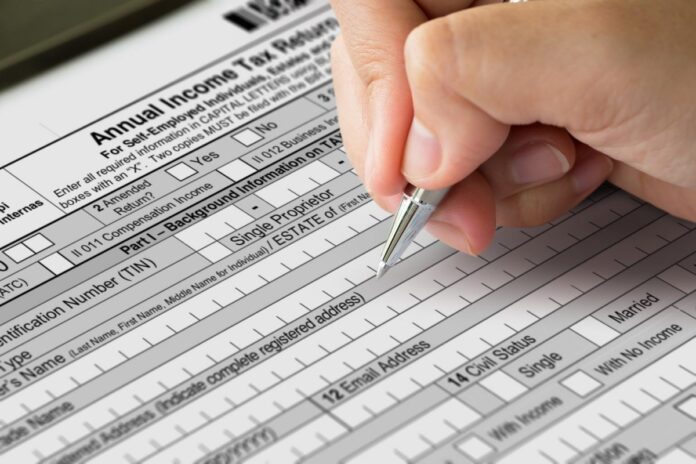Switzerland attracts many expatriates, foreign investors, and professionals. Known for its efficient system, high quality of life, and excellent public services, it remains a top destination for those seeking to establish residency or business.
However, navigating Swiss taxation rules can be daunting, especially for those new to the country. Every foreigner must grasp key regulations before settling in Switzerland to avoid legal or financial issues.
Key Points to Keep in Mind
- Switzerland has a unique federal, cantonal, and communal tax system.
- Residency status directly affects taxation obligations.
- Foreigners are subject to withholding taxes, but there are exceptions.
- Wealth and income taxes vary between cantons.
- Double tax agreements protect residents from paying double taxes.
- Swiss tax obligations differ based on marital status and income level.
The Swiss Tax Structure

Switzerland operates on a multi-tier tax system, including federal, cantonal, and municipal levels. Each canton has its own rules regarding tax rates, deductions, and specific regulations. Municipal taxes add another layer, meaning that tax rates differ depending on where one lives within Switzerland. The federal tax rate is applied uniformly across the country.
For foreigners, it’s important to note that their taxation obligations hinge on residency status. Permanent residents (or those who stay for more than 90 days) are treated as residents for tax purposes. This applies even to those without formal residency but who work within the Swiss borders.
Residency and Taxation
Foreigners who work in Switzerland but do not hold permanent residency permits fall under withholding tax rules. The employer deducts this directly from their salary, but the system is designed to prevent confusion for those who may not yet have Swiss tax knowledge. Non-residents with significant income or assets in Switzerland are subject to similar regulations.
For a more streamlined taxation experience, many expatriates choose to use tax services like SimpleTax. SimpleTax offers professional assistance and expertise in completing Swiss tax returns. Their services reduce complexity, ensuring that foreigners meet deadlines and comply with local laws.
Wealth and Income Taxes

Wealth and income taxes are an essential part of Swiss taxation. Each canton applies its own rates. High-income earners or individuals with significant assets may face higher taxes. Many cantons offer deductions and allowances, but knowing which ones apply can be tricky.
Unlike other countries, Swiss cantons are allowed to set their own rates for income taxes. The wealth tax also varies widely. To avoid unnecessary charges, careful planning is recommended, especially if an individual holds substantial investments or property within Switzerland.
Double Taxation Agreements
Switzerland has entered into double tax agreements (DTA) with numerous countries to prevent individuals from being taxed twice on the same income. These agreements ensure that foreigners who already pay taxes in their home countries won’t face double charges in Switzerland. It provides peace of mind to expatriates, business owners, and investors concerned about their international tax obligations.
However, DTAs differ depending on the country of origin. It’s crucial to review the agreement relevant to the individual’s home country and consider how this might affect overall taxation in Switzerland.
Swiss Tax Obligations for Foreigners

Foreigners in Switzerland are often subject to different tax rules than Swiss citizens. Married couples are taxed jointly, with deductions available for children and other dependents. For non-resident workers, withholding taxes apply, but they may also be required to submit additional documentation depending on income level.
It’s wise for expatriates to familiarize themselves with cantonal tax rates, and to investigate available deductions, credits, and benefits. Foreigners who qualify for residency in Switzerland may also face wealth taxes, even if their assets remain outside the country.
FAQ Section
1. Do foreigners need to file a tax return every year in Switzerland?
Yes, foreigners with residency status or significant income/assets in Switzerland must file yearly tax returns unless they fall under specific exemptions, such as being a cross-border worker with withholding taxes.
2. What happens if someone works in Switzerland but lives in a neighboring country?
Cross-border workers are subject to different taxation rules. They typically pay Swiss taxes only on their Swiss income. Double tax agreements may apply to prevent them from being taxed twice.
3. Is it mandatory to declare foreign assets in Switzerland?
Yes, foreigners who reside in Switzerland or have assets above a certain threshold are required to declare foreign assets. The amount varies based on the canton.
4. Do cantonal tax rates affect federal tax obligations?
No, cantonal tax rates are separate from federal taxes, which are uniform across Switzerland. However, municipal taxes within cantons may add to the overall tax burden.
5. What deductions are available to foreigners in Switzerland?
Foreigners can benefit from deductions such as housing expenses, child support, and healthcare costs, depending on cantonal rules. Reviewing specific cantonal regulations is essential for maximizing tax relief.

Conclusion
Navigating Swiss taxation can seem overwhelming for foreigners, but with the right knowledge, it becomes manageable. Familiarizing oneself with the country’s federal, cantonal, and municipal tax structure is vital to avoid costly mistakes. It’s advisable to seek professional assistance, especially when dealing with withholding taxes, wealth taxes, and double tax agreements.
Understanding the nuances of the Swiss tax system may take time, but planning ahead and using available resources will reduce financial stress for foreigners who choose to live and work in Switzerland.







